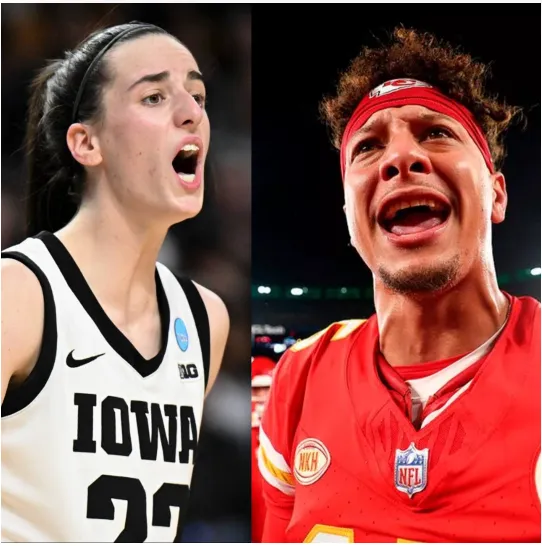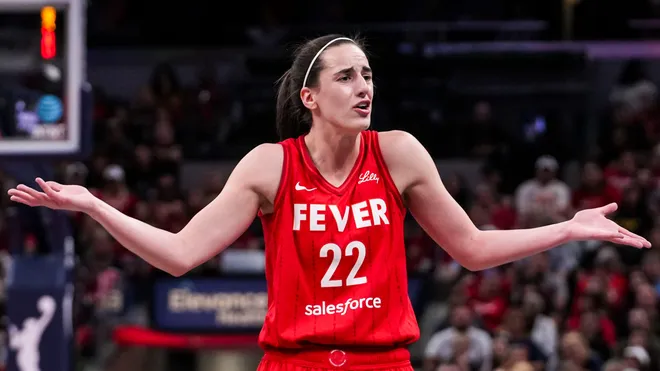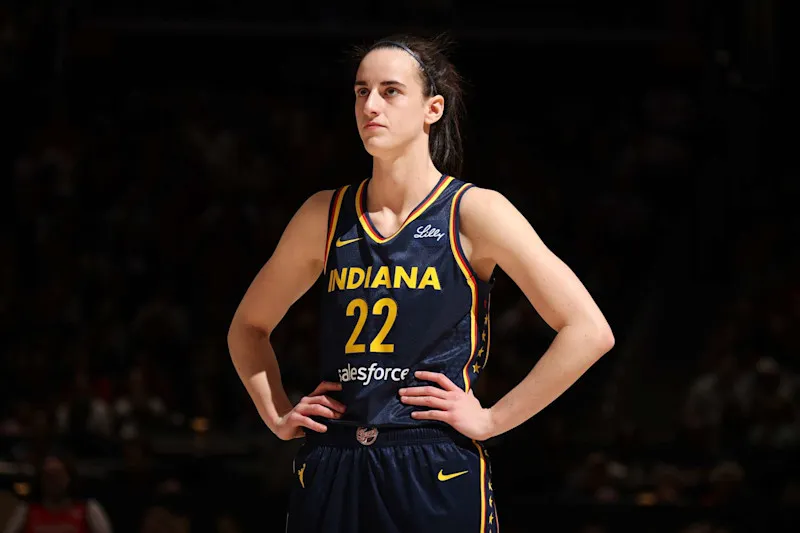In a recent incident that has sparked significant debate within the sports community, NFL star Patrick Mahomes faced backlash for his comments regarding the performance of college basketball sensation Caitlin Clark. Known for his supportive nature and sportsmanship, Mahomes’s critique has raised questions about the dynamics of feedback among athletes and the responsibilities that come with being a public figure.

Caitlin Clark, a standout player in women’s college basketball, has garnered widespread acclaim for her talent and achievements on the court. However, during a couple of key matchups in the recent season, Clark struggled to perform at her usual high standard. In response to her performance, Mahomes took to social media, where he acknowledged her exceptional skills but also pointed out areas where he felt she needed improvement. His intention, as he stated, was to offer constructive criticism aimed at helping her elevate her game.
Despite Mahomes’s good intentions, his remarks were met with mixed reactions from fans and commentators alike. While some appreciated his willingness to engage in dialogue about athlete performance, others felt that his comments were inappropriate, particularly given Clark’s status as a young athlete still developing her skills.

The reactions to Mahomes’s comments quickly divided the sports community. A substantial number of fans rallied around Caitlin Clark, emphasizing the importance of mental health in sports. They argued that criticism from a high-profile figure like Mahomes could be detrimental to an athlete’s confidence, particularly during challenging times. Supporters of Clark highlighted the immense pressure athletes face, suggesting that public critiques can exacerbate these stresses.
On the other side of the debate, some fans defended Mahomes, stating that as a fellow athlete, he has the right to voice his opinions and expectations. They argued that this type of feedback is a natural part of competitive sports, where accountability and the drive to improve are essential components of success.
This incident has led to broader discussions about the nature of feedback in sports and the fine line between constructive criticism and harsh judgment. Many commentators are calling for a reevaluation of how athletes interact with one another, particularly in the public eye. The consensus among some analysts is that athletes should strive to create a culture of support, especially in high-pressure environments where mental resilience is crucial for success.

Furthermore, this debate touches on the responsibilities of public figures in sports. As athletes gain prominence, their words carry significant weight, and the impact of their statements can resonate far beyond the immediate context. The challenge lies in balancing honest feedback with sensitivity to the pressures that young athletes, like Clark, experience.
Patrick Mahomes’s criticism of Caitlin Clark has ignited a vital conversation about athlete accountability, the nature of feedback in sports, and the expectations placed upon public figures. As both Mahomes and Clark continue to navigate their respective careers, this incident serves as a poignant reminder of the complexities involved in the world of sports. Whether such critiques foster growth or generate controversy, it is evident that the sports community is always watching, ready to engage in discussions that shape the future of athletic performance and camaraderie.


